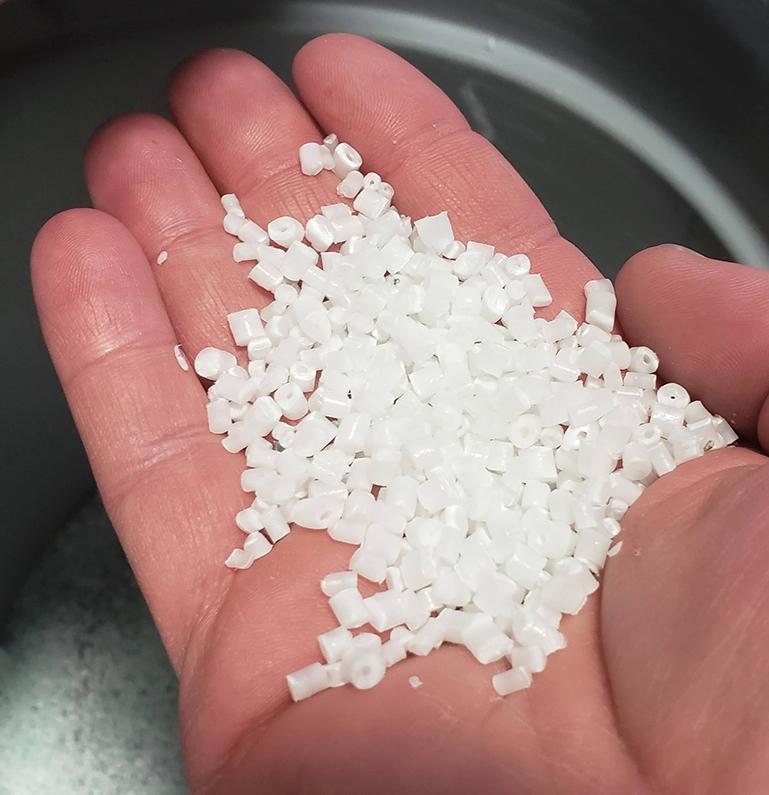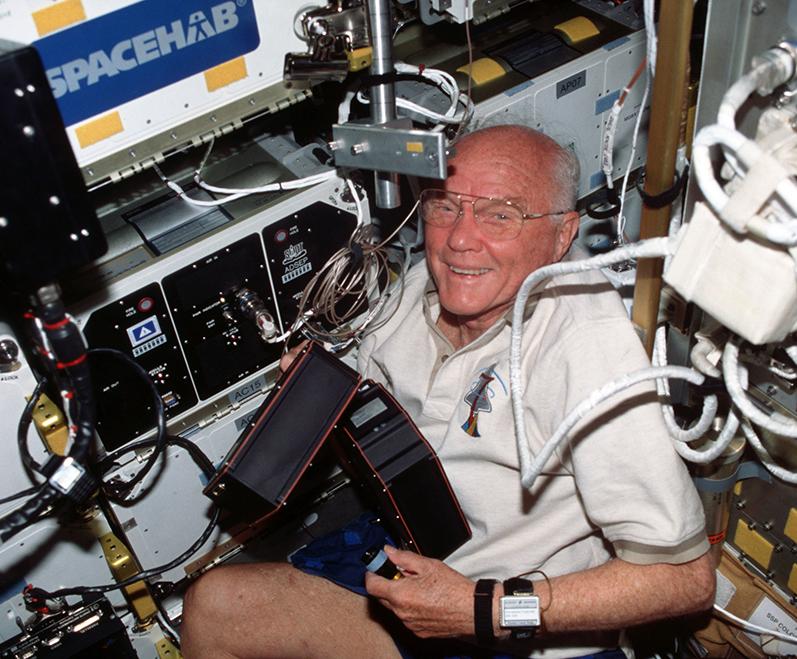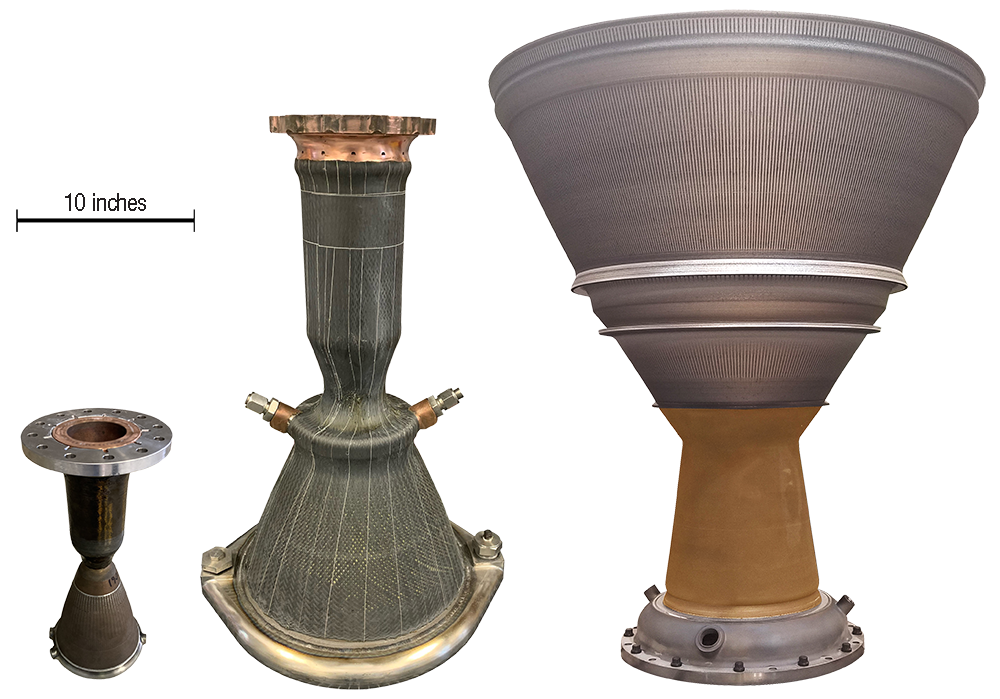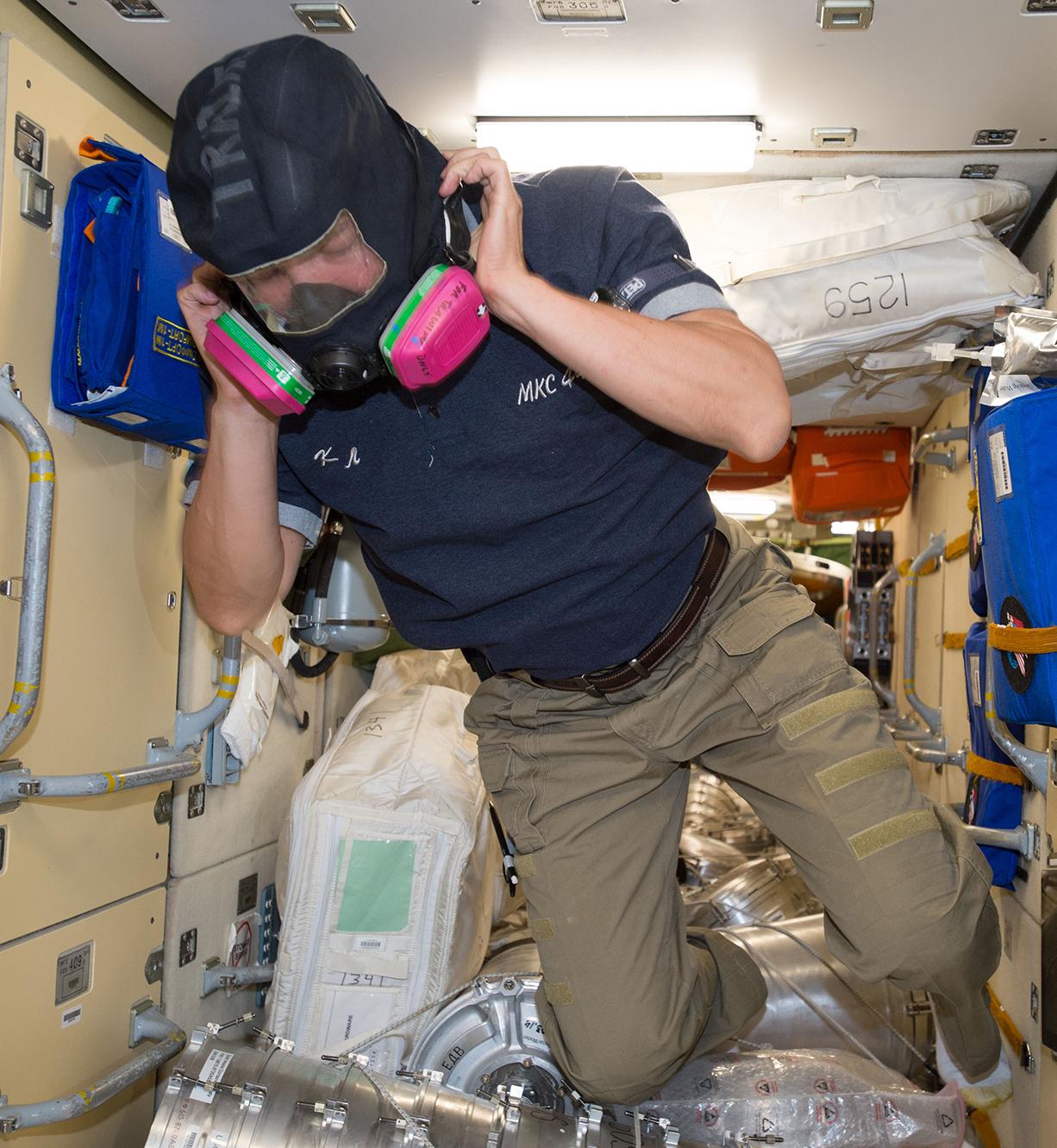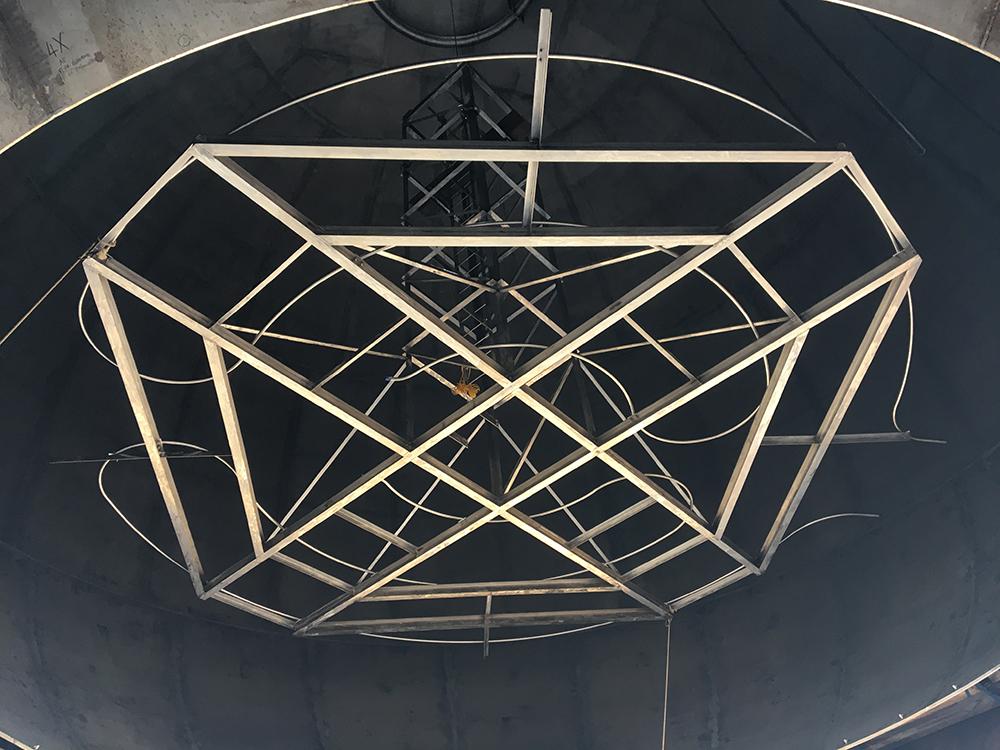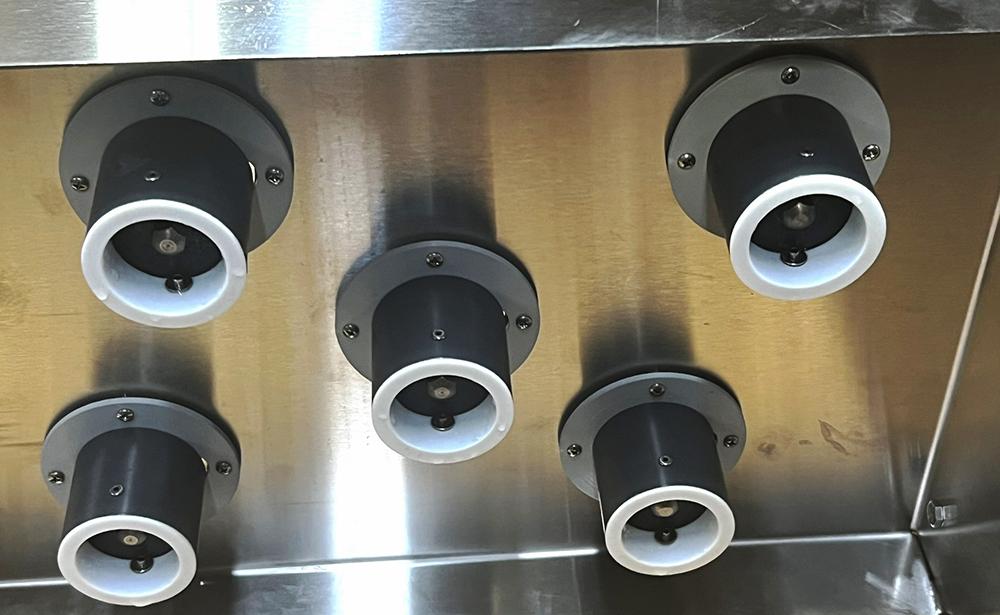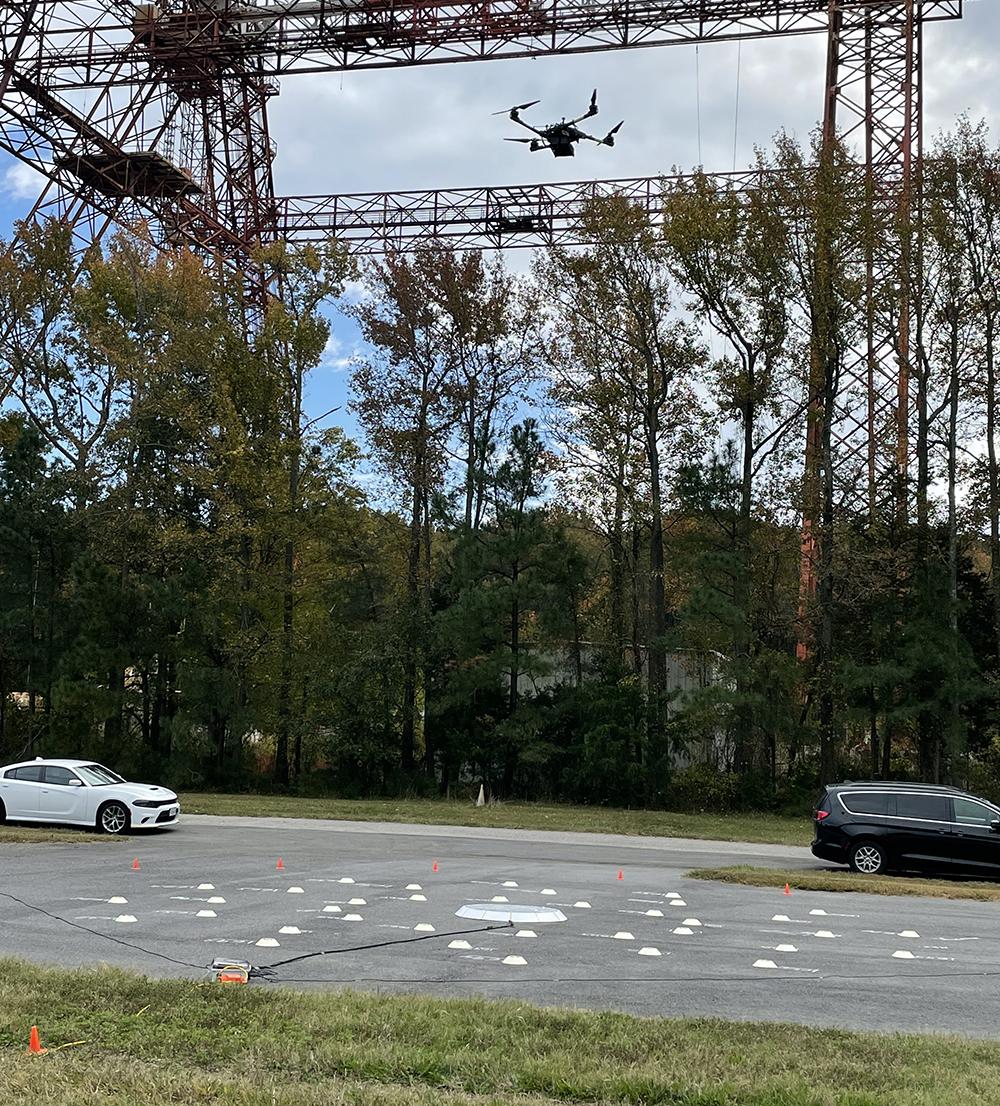A Winning Cast
Howmet Research Corporation, of Whitehall, Michigan, a leader in materials research and manufacturing technologies, was the first to commercialize an innovative cast metal technology developed at Auburn University, Auburn, Alabama. With funding assistance from NASA's Marshall Space Flight Center, Auburn University's Solidification Design Center (a NASA Commercial Space Center), developed accurate nickel-based superalloy data for casting molten metals. Through a contract agreement, Howmet used the data to develop computer model predictions of molten metals and molding materials in cast metal manufacturing.
Howmet Metal Mold (HMM), part of Howmet Corporation Specialty Products, of Whitehall, Michigan, utilizes metal molds to manufacture net shape castings in various alloys and amorphous metal (metallic glass). By implementing the thermophysical property data from by Auburn researchers, Howmet employs its newly developed computer model predictions to offer customers high-quality, low-cost, products with significantly improved mechanical properties. Components fabricated with this new process replace components originally made from forgings or billet. Compared with products manufactured through traditional casting methods, Howmet's computer-modeled castings come out on top.
Howmet's Whitehall facility is a leading producer of complex cast turbine components for the aerospace and industrial gas-turbine industries. Cast turbine components include blades, vanes, and other high-temperature hardware for turbine engines. Howmet's commercial customers comprise a long and impressive list, which includes names like G.E. Aircraft Engines, Pratt & Whitney, Rolls Royce, Rocketdyne, and Honeywell. According to Dr. Thomas Tom, director of advanced technology for Howmet, Applying the NASA and Auburn University-led research to turbine blade castings has enhanced our capabilities, helped us realize a cost savings, and accelerated the development cycle for rocket hardware.
Professor Tony Overfelt, director of the Solidification Design Center at Auburn University, notes that many manufacturing processes (shaped castings, electronic crystals, food processing, chemical manufacturing, etc.) require advanced materials data to support improved process designs. We're doing the long range research that industry really needs to improve its final products, said Overfelt. We're benefiting the American public--those who pay for the research and use the products.
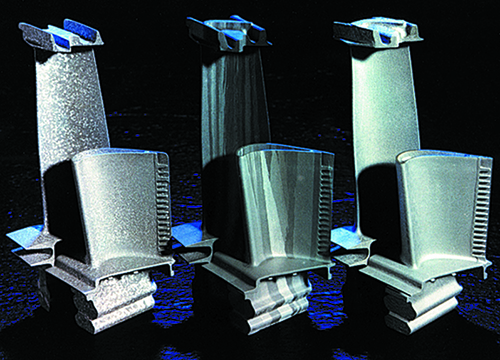
Howmet utilizes computer model predictions to produce high-quality, low-cost, mechanical replacement components like the cast turbine blades seen here.






